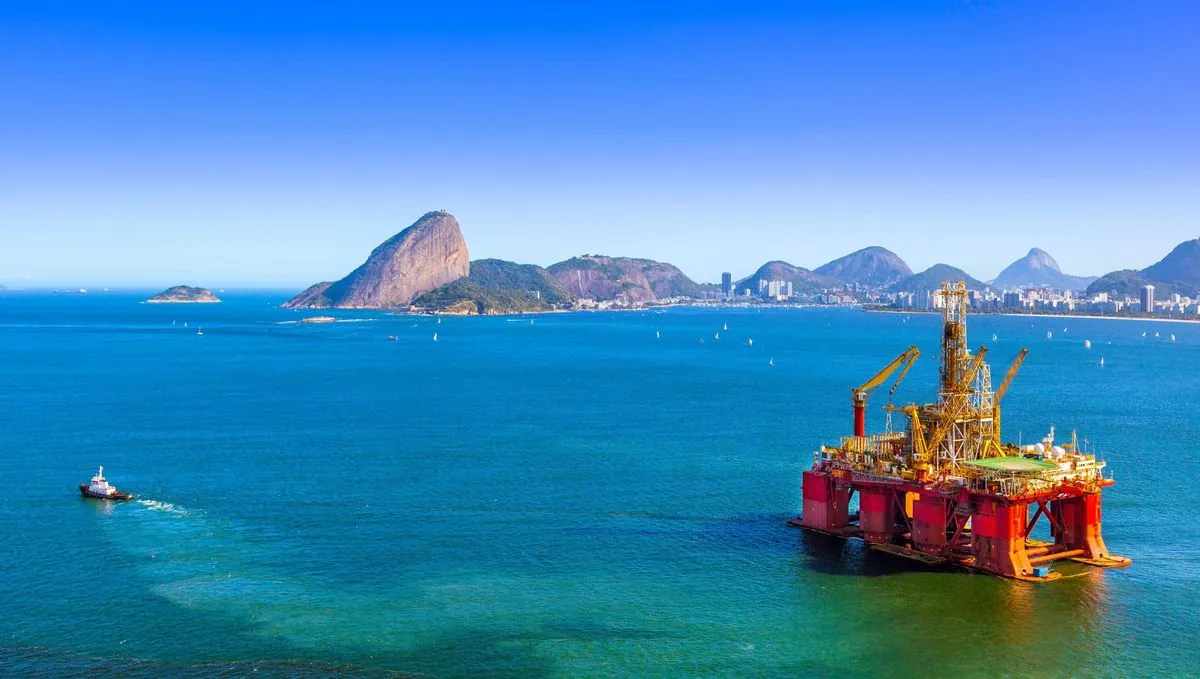In a landmark development for Suriname, French energy giant TotalEnergies and U.S.-based APA Corp have unveiled plans for a $10 billion offshore oil extraction project. This investment, the largest in the nation's history since gaining independence from the Netherlands in 1975, is poised to significantly impact the economy of this small South American country.
The GranMorgu project, situated in waters adjacent to Guyana's successful ExxonMobil venture, targets an area estimated to contain 700 million barrels of oil. Production is slated to commence in approximately 3.75 years, with an anticipated output of 220,000 barrels per day. This development marks a pivotal moment for Suriname, a nation of over 640,000 people, where Dutch remains the official language despite its diverse population including descendants of African slaves, Indian and Javanese contract workers, and indigenous peoples.
Patrick Pouyanné, CEO of TotalEnergies, personally traveled to Suriname to announce the investment, underscoring its significance. The project involves a partnership between TotalEnergies, APA Corp (a holding company for Apache Corporation), and Staatsolie, Suriname's national oil producer representing the government's interests.
President Chan Santokhi expressed optimism about the project's potential to elevate living standards in Suriname, where the poverty rate stands at 18% according to the Inter-American Development Bank. The country, known for its vast rainforests covering 93% of its land area, has traditionally relied on bauxite mining and exports such as gold and bananas.
Annand Jagesar, CEO of Staatsolie, while acknowledging the project's transformative potential, cautioned against over-reliance on oil revenues. He cited Venezuela's economic struggles despite abundant oil reserves as a cautionary tale, emphasizing the importance of diversifying the economy.
Suriname, the smallest sovereign state in South America by area, boasts remarkable biodiversity and cultural richness. The country is home to the Central Suriname Nature Reserve, a UNESCO World Heritage site, and is known for its unique maroon culture descended from escaped African slaves. With a literacy rate exceeding 90% and a capital city, Paramaribo, also recognized as a UNESCO World Heritage site, Suriname stands at a crossroads of tradition and potential economic transformation.
As the nation prepares for this new chapter in its economic history, balancing oil development with environmental preservation and sustainable growth will be crucial. The GranMorgu project not only promises economic benefits but also presents challenges in maintaining Suriname's rich cultural heritage and ecological treasures, including its role as a nesting site for the rare Leatherback sea turtle.
"Today is a historic day for Suriname, a day that will determine our future."
This ambitious oil project marks a significant shift for a country that has long been known for its bauxite mining, dating back to 1916. As Suriname embarks on this new economic journey, the world watches to see how this small but diverse nation will navigate the opportunities and challenges that lie ahead.
